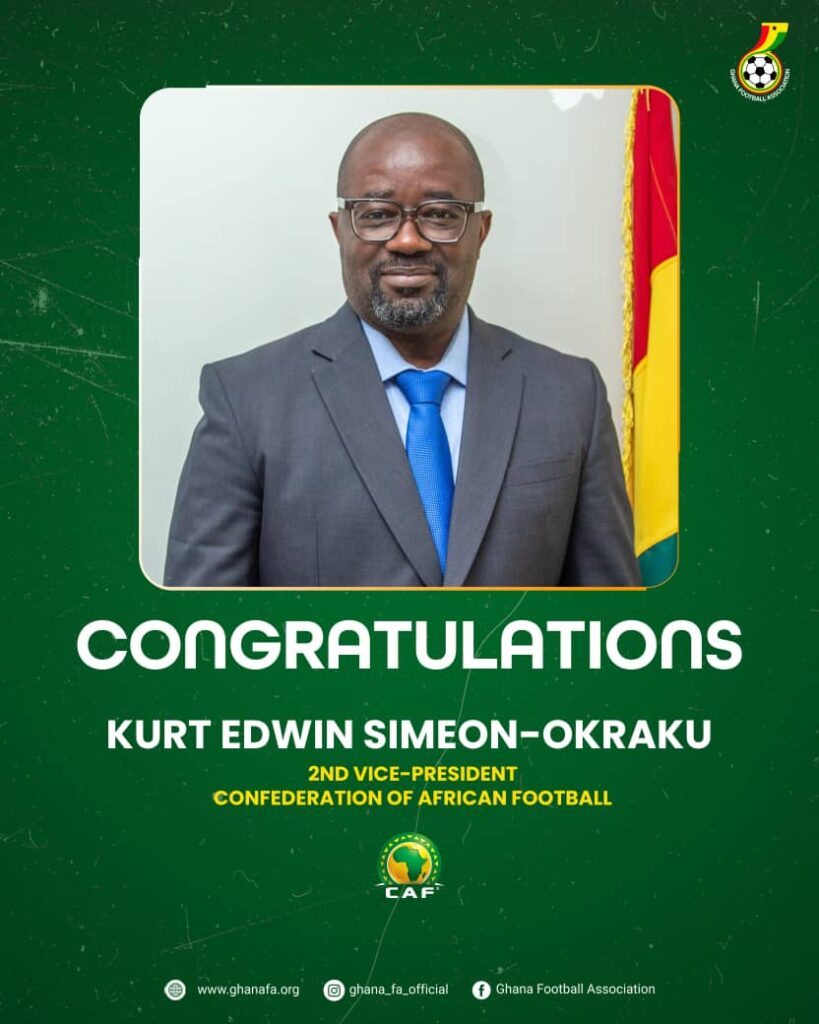In a landmark development for African football, Ghana Football Association (GFA) President Kurt Okraku has been appointed as the Second Vice President of the Confederation of African Football (CAF). The appointment was officially confirmed during a pivotal CAF Executive Committee meeting held at the Kempinski Hotel in Accra, Ghana.
Okraku’s elevation marks a significant milestone, as he becomes the first West African Anglophone to assume such a senior leadership position under CAF President Patrice Motsepe. His appointment reflects a growing commitment to enhancing regional representation and inclusivity within African football governance, addressing long-standing calls for greater balance across the continent.
The recognition of Okraku’s leadership comes in light of his transformative efforts in Ghana, where he has spearheaded reforms aimed at revitalizing domestic football. Under his leadership, Ghana has seen strides in professionalizing leagues, strengthening grassroots programs, and promoting transparency and accountability within football administration.
The timing of his appointment is particularly noteworthy, coming amid global concerns over the marginalization of Anglophone countries in recent CAF and FIFA elections. Okraku’s new role signals a deliberate move by CAF to bridge regional divides and foster a more equitable structure that better represents the continent’s diverse linguistic and regional communities. Hosting the Executive Committee meeting in Accra further underlines Ghana’s rising influence in shaping the future direction of African football.
As Second Vice President, Okraku will play a crucial role in steering major CAF policies and initiatives. With a track record of progressive leadership and a development-driven vision, he is expected to champion reforms that advance not only Ghana’s interests but also those of Anglophone and West African nations.
Okraku’s appointment marks a hopeful new chapter for African football — one that emphasizes unity, inclusivity, and shared progress. His rise reflects a broader movement toward a governance structure that amplifies diverse voices and paves the way for a stronger, more united African football community.


